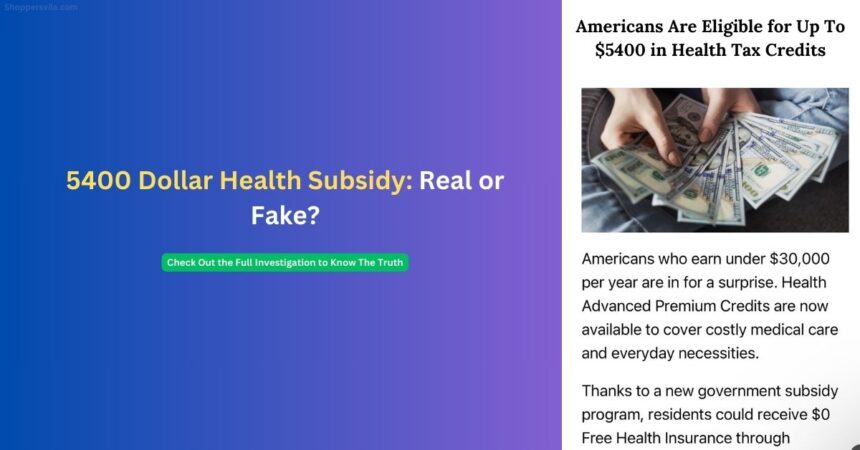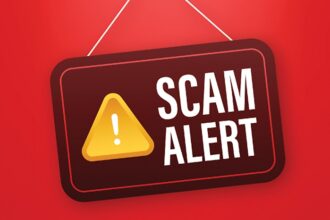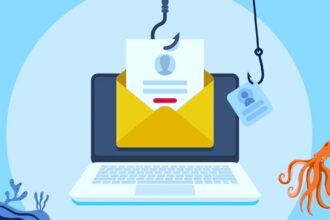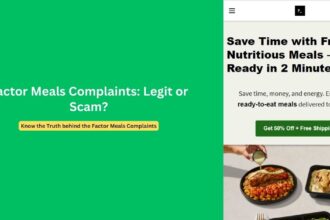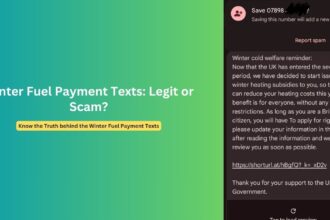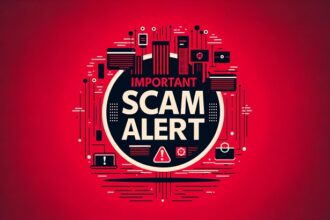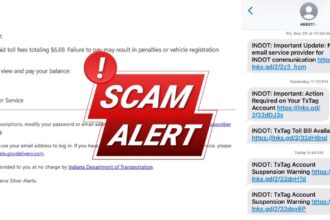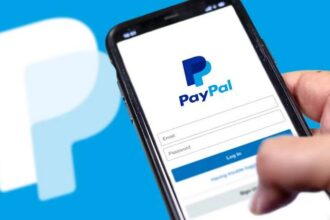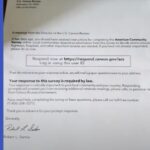In the midst of economic uncertainty and rising costs, it’s no surprise that many Americans are on the lookout for any potential government assistance. Unfortunately, a new wave of scams has been sweeping the internet, preying on the desperation of those seeking financial relief. One of the most prominent examples is the $5,400 health subsidy scheme, which has been spreading like wildfire through social media and online advertisements.
The Promise of a $5,400 Windfall: Too Good to Be True
The premise is simple: a government-backed program is offering $5,400 in health benefits to every American, delivered through a prepaid debit card or directly into their bank account. The ads feature testimonials from purported recipients, celebrating their newfound financial freedom and the ability to cover essential expenses like rent, groceries, and gas.
However, the harsh reality is that this $5,400 health subsidy is nothing more than a cruel hoax, designed to lure in unsuspecting victims and steal their personal information.
Investigation of the 5400$ Health Subsidy is Real or Fake
The scam typically begins with enticing advertisements on platforms like YouTube, Facebook, and Google. These ads often feature well-known celebrities or authority figures, further lending an air of legitimacy to the offer. The video or article may claim that the $5,400 subsidy is part of a new government initiative, such as the “Inflation Relief Act” or the “Health Savings Allowance.”
Once a potential victim clicks on the ad, they are directed to a website that appears to be an official government portal. Here, they are prompted to provide a range of personal and financial information, including their name, address, phone number, and even their social security number.
The scammers behind these websites are skilled at creating a sense of urgency, pressuring victims to act quickly before the supposed “limited-time offer” expires. They may also claim that the victim’s eligibility is contingent on providing this sensitive information.
The Devastating Consequences
Unfortunately, those who fall for the $5,400 health subsidy scam are often left with far more than just a disappointment. By handing over their personal data, they become vulnerable to identity theft, financial fraud, and a barrage of unwanted marketing calls and emails.
“It’s a heartbreaking situation,” says Emily Rosario, a consumer protection expert at the Federal Trade Commission. “These scammers are exploiting people’s desperation for financial assistance, and the consequences can be devastating. Not only do victims lose out on the promised $5,400, but they also risk having their identities compromised, which can take years to fully recover from.”
Protecting Yourself from the 5400 Dollar Subsidy Fraud
To avoid falling victim to this scam, it’s crucial to be vigilant and skeptical of any unsolicited offers of large sums of money or government benefits. Here are some key steps to protect yourself:
- Verify the source: If an offer seems too good to be true, it likely is. Take the time to research the organization or program making the claim, and look for official government websites and sources to confirm the legitimacy of the offer.
- Don’t provide personal information: Never share your personal or financial information, such as your Social Security number, bank account details, or credit card information, with an unsolicited third party. Legitimate government programs will have a clear application process and will not ask for this information over the phone or through a website.
- Check for red flags: Be wary of any high-pressure tactics, urgent deadlines, or claims of exclusivity. Scammers often use these techniques to create a false sense of urgency and get victims to act quickly.
- Report suspicious activity: If you encounter an ad or website that appears to be a $5,400 health subsidy scam, report it to the Federal Trade Commission and your local law enforcement. This helps authorities track and shut down these fraudulent operations.
The Importance of Staying Informed
As the $5,400 subsidy scam continues to spread, it’s crucial for the public to stay informed and vigilant. By educating themselves and their communities, individuals can help prevent others from falling victim to these types of deceptive schemes.
“Scams like this prey on the vulnerability of those who are struggling financially,” says Rosario. “But by raising awareness and encouraging people to verify the legitimacy of any offers, we can help protect our friends, family, and neighbors from these predatory practices.”
So, the next time you see an ad or a claim about a $5,400 health subsidy, remember: it’s likely too good to be true. Take the time to research, verify, and protect yourself – your financial well-being could depend on it.
